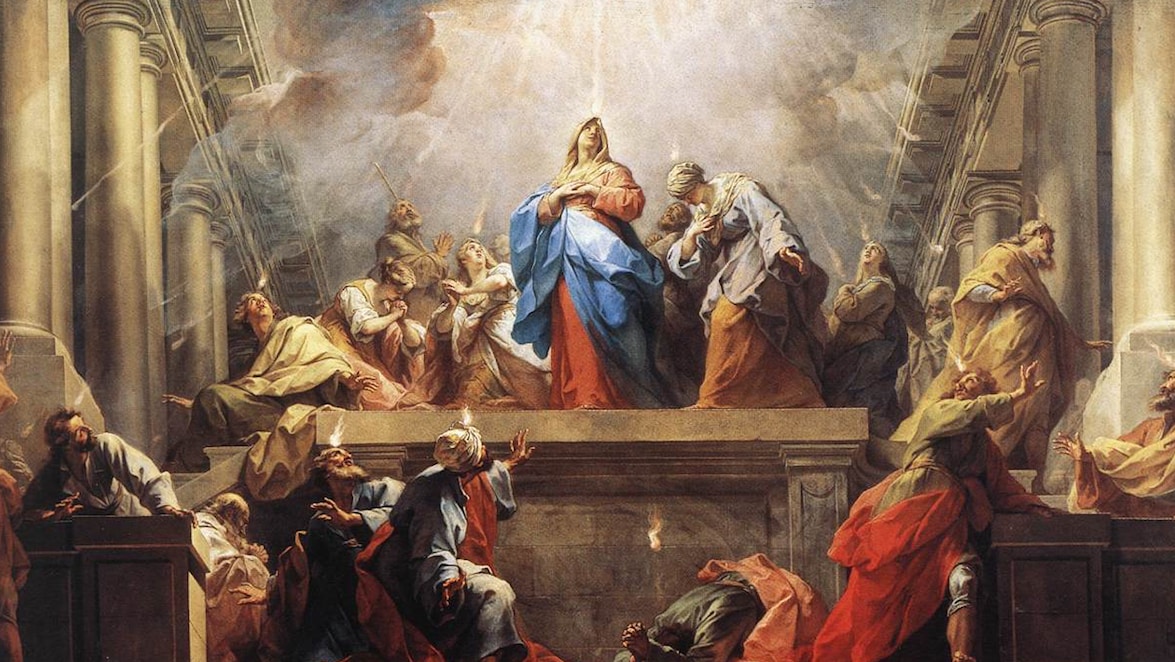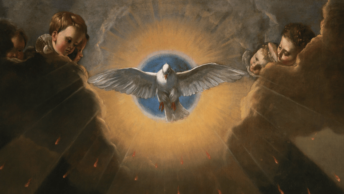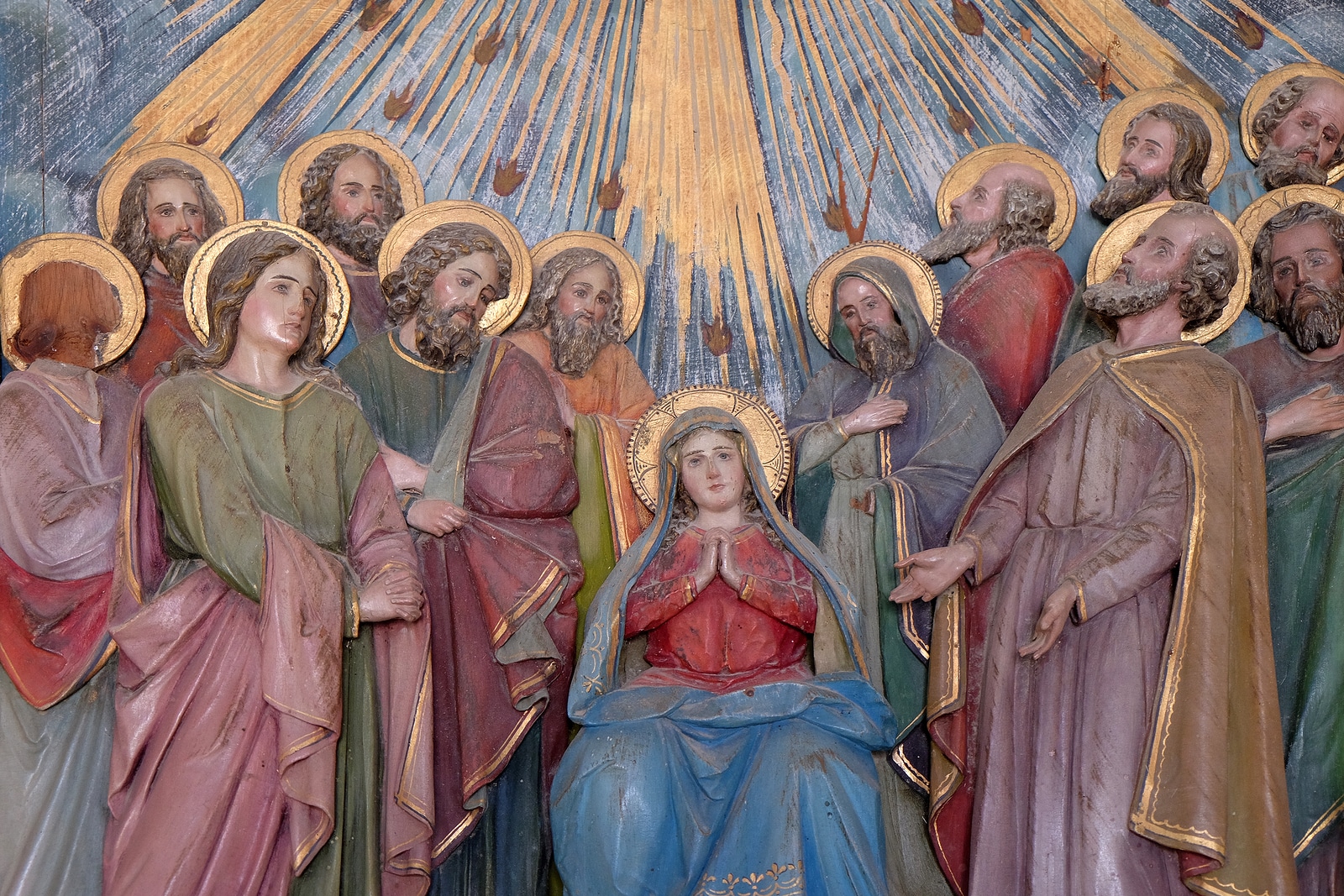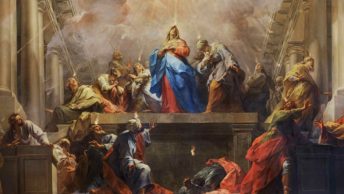Bob Dylan once sang, “You don’t need a weatherman to know which way the wind blows.” It may have been a catchy line forty years ago, but two thousand years ago, Jesus had a different perspective. But first some background.
Within the Scriptures, the elements are used over and over to describe the power and transforming nature of God. Wind, especially, is a mysterious force. It is a symbol of transience (Ps. 78:39), fruitless striving (Eccles. 1:14), and empty talk (Jer. 5:13). It is also suggestive of untamed, irresistible power, whirling and scattering (Jer. 18:17) or tossing to and fro (Eph. 4:14). In Mark’s Gospel, only God could command the winds (4:41). In the Acts of the Apostles (2:2) we are told that the Holy Spirit at Pentecost arrived with the sound of a mighty wind. (Adapted from the Harper Collins Bible Dictionary)
In a discussion with Jesus regarding the Kingdom of God, Nicodemus (the Pharisee) is puzzled and asks: “How can a man be born when he is old? Can he enter a second time into his mother’s womb and be born?” (Jn 3:4) Jesus answers: “Truly, truly, I say to you, unless one is born of water and the Spirit, he cannot enter the kingdom of God. That which is born of the flesh is flesh, and that which is born of the Spirit is spirit. Do not marvel that I said to you, ‘You must be born anew.’” (Jn 3:5-7) And in the very next verse, Jesus lays it out:
The wind blows where it wills, and you hear the sound of it, but you do not know whence it comes or whither it goes; so it is with every one who is born of the Spirit. (Jn 3:8)
On Pentecost, it was the gifts of the Holy Spirit that Mary and the Apostles were waiting for. The Holy Spirit dramatically changed their lives. Did you know He can do the same for us?
According to one biblical scholar: “We must be made new creatures. No stronger expression could have been chosen to signify a great and most remarkable change of state and character. We must be entirely different from what we were before, as that which begins to be at any time, is not, and cannot be the same with that which was before. This new birth is from heaven, (Jn 1:13), and its tendency is to heaven. It is a great change made in the heart of a sinner, by the power of the Holy Spirit. It means that something is done in us, and for us, which we cannot do for ourselves.” (Matthew Henry’s Concise Commentary)
In the Book of Isaiah (11:2-3), the Gifts of the Holy Spirit are listed. In the Sacrament of Confirmation, we receive them: Wisdom (which helps us recognize the importance of others and keeping God central in our lives); Understanding (the ability to comprehend the meaning of God’s message); Knowledge (the ability to think about and explore God’s revelation); Counsel (the ability to see the best way to follow God’s plan); Piety (helps us pray to God in true devotion); Fear of the Lord (the feeling of amazement before God and whose friendship we would never want to lose); and Fortitude (the courage to do what one knows is right).
But in receiving them, what do we do with them? Do we hide them under a basket or do we share them with others? This past week, I read about one high school principal in Missouri who boldly used the gift of fortitude. In his address to graduates at Lebanon High School, Kevin Lowery reminded them of America’s religious history and that our nation’s motto is, in fact, ‘In God We Trust.’ “If you’re ever in doubt, just take a quick look at our nation’s currency and you’ll find out for yourself.” Continuing, he cited the inclusion of a “creator” in the Declaration of Independence and lamented that “despite a rich faith-filled history, many say that mentions of God in the public square are inappropriate.” Near the end, he noted how “we are told that it is inappropriate and even illegal to mention God at high school graduations, let alone say a prayer.” And so, instead of a formal prayer, he declared that a moment of silence be observed. Afterward, he described his thoughts during the silence:
I asked God to protect these students as they go their separate ways into the world. I asked God to avail himself in every possible way, he continued. And I asked God to watch over them, to protect them, and to bless them with self-fulfillment, with compassion, inner peace, and personal prosperity.
Did you know that this one man from Missouri who was unafraid to use just one gift of the Holy Spirit has caused a firestorm from atheists—especially those “learned” men and women who teach our children in universities. To this, I say “Amen, and may God be praised!”
On the first Pentecost, the wind blew and the Spirit poured out His gifts. Today, the very same Spirit is given. May we remember that these gifts are not meant to be kept in a container. Rather, they are to be used to change the world.
Let us begin.








